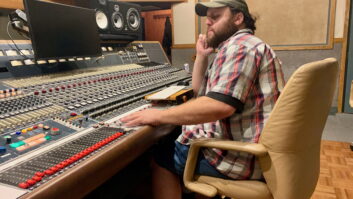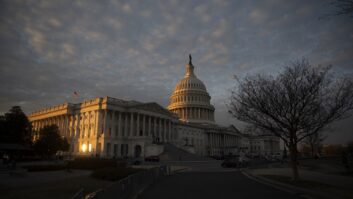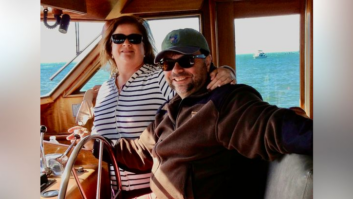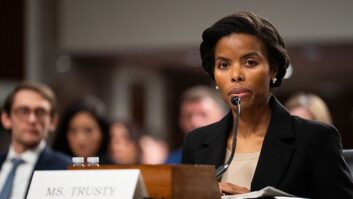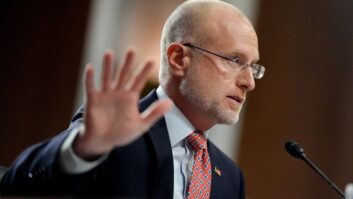The ABU Digital Broadcasting Symposium 2019, which took place in Kuala Lumpur on 4–7 March, showcased the latest digital technologies and looked at the challenges facing broadcasters in an increasingly competitive age.
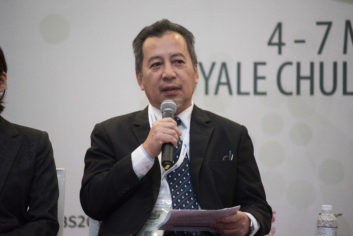
This year’s event, which marked the symposium’s 15th anniversary, welcomed 60 companies promoting their digital equipment and services during the three-day exhibition.
A conference highlight on the final day was a high-level debate on the way ahead for public broadcasters in the digital age. Senior broadcasters from Malaysia, Singapore, Japan, Korea, the UK and Germany looked at how broadcasters can best meet the challenge from online competitors.
Among them was the new Director General of Radio Televisyen Malaysia, Abdul Muis Shefii. He said terrestrial television remained popular in Malaysia but stressed RTM’s determination to improve its internet streaming services to attract more viewers.
[Read: ABU-DBS Is Set for 15th Edition]
He agreed with Augustine Hong of Korean public broadcaster KBS, who said public broadcasters were still too focused on traditional media, and needed to offer more “anywhere, anytime” online services to stay relevant.
Lindsey Cornell of the BBC outlined the range of new digital services the broadcaster was offering for laptops and desktops, as well as apps for phones. “There are a lot of new skills to learn when you’re dealing with social media.”
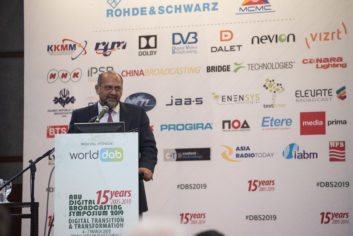
He said broadcasters had a long tradition of understanding their audiences. This gave them an advantage over big tech companies. “We have the ability to produce content that will work for our audiences,’ he said.
Malaysia’s Communications and Multimedia Minister, Gobind Singh Deo, opened the exhibition and addressed the conference. He said broadcasters and media organizations needed to implement digital solutions quickly and transform themselves to stay relevant and compete with giants like Netflix and Amazon. “If we do not develop our own digital solutions and engage with our audiences, someone else is going to take our place.
“That is why fellow broadcasters from the region need to make use of such events and forums to learn from the experts and work together to achieve these goals and not be left behind.”
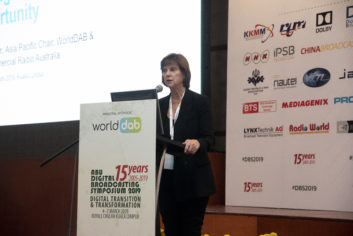
He also spoke of the need for greater security and safety of online platforms, a subject later taken up in a session of the conference. Speakers in the session identified ongoing staff training as one of the best ways for broadcasters to fight threats to their cybersecurity. They noted that cyber threats to broadcasters were continuing to grow, and ranged from hijacking of their on-air services and theft of information to content piracy.
“We are trophy targets,” Kathryn Brown of Commercial Radio Australia said. The risks needed to be assessed continually, along with regular staff training and collaboration with other essential services that faced similar threats.
Hamid Nayeri of Iran’s public broadcaster, IRIB, detailed some of the ways the ABU was working with other broadcasting unions to fight threats to cybersecurity. These included drawing up recommendations for media vendors’ systems, software and services, and on the need for broadcasters to minimize online administrative privileges. He said regular staff training was “perhaps the most important of all”.
The future of digital radio was another important focus at the symposium. Speakers said radio was booming thanks to new digital audio technologies such as DAB+ that allowed for more efficient use of spectrum, enabling broadcasters to expand their service cost effectively.
Grant Blackley, CEO of Southern Cross Austereo, an Australian FM broadcaster, said he believed fundamentally that audio was in a boom period.
Cath Dwyer, a senior executive with the Australian Broadcasting Corporation, agreed. “It’s the golden age of radio,” she said.
The CEO of Commercial Radio Australia, Joan Warner, gave the industry keynote as a representative of WorldDAB, the symposium’s principal sponsor.
She said that in the digital age, audiences expected more from broadcasters. “We can use digital opportunities to deliver to the changing needs of the audience. Audiences want our content, advertisers like our ability to reach customers and governments want our support in delivering services. There are multiple ways of accessing content. Broadcast radio is the backbone of that.”
The ABU Secretary-General, Javad Mottaghi, thanked WorldDAB, the two major sponsors, MCMC and Rohde & Schwarz, and the other sponsors and partners. He said holding the symposium would have been impossible without them.
The symposium ended with the Best Booth Award, chosen by participants. It went to a new exhibitor, IntegritiPadu Sdn Bhd (IPSB) of Malaysia. Their prize is a free booth at DBS 2020, which takes place on 2–5 March.
